Floods in Kerala; another Ebola outbreak; critical humanitarian situation in Nigeria’s Borno state; and other stories you might have missed this month
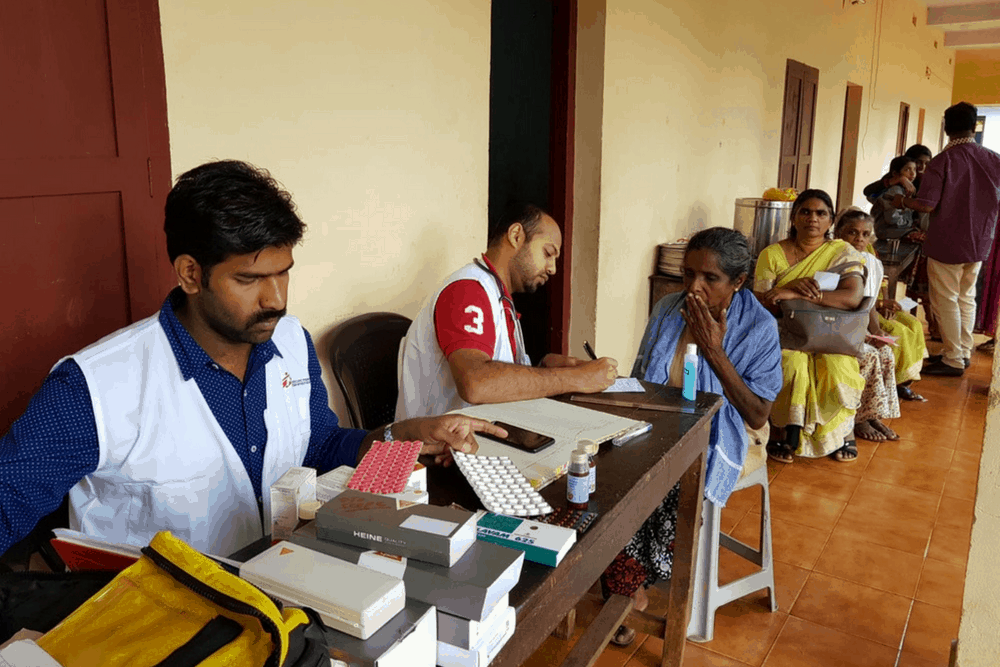
An MSF team providing consultations at a medical camp in northern Kerala’s Wayanad district.
The worst floods in nearly a century in Kerala have left many dead and lakhs displaced across the state’s 14 districts. MSF teams are working in relief camps in Wayanad, one of the worst-affected districts. Teams are focusing on distribution of hygiene and shelter kits and chlorination of water sources in the camps in order to prevent the outbreak of water-borne diseases. MSF is also assisting the district administration by carrying out medical camps to diagnose and treat non-communicable diseases.
Photo: Asma Valiyakat/MSF
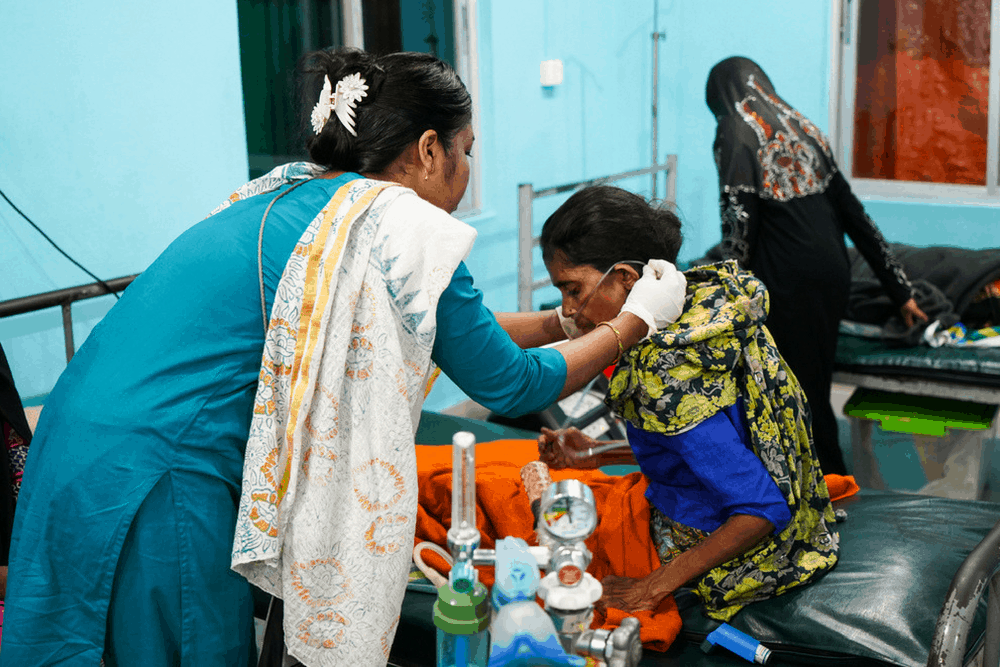
An MSF nurse tends to a patient at MSF’s medical facility in Kutupalong, Bangladesh.
25 August marked one year since the beginning of the exodus of Rohingyas in the wake of Myanmar Army’s ‘clearance operations’ in Rakhine State. More than 706,000 Rohingyas fled to Bangladesh, joining over 200,000 others that had fled after earlier waves of violence. However, the denial of their legal status, coupled with unacceptable living conditions in haphazard makeshift camps, continues to trap refugees in a cycle of suffering and poor health. In the past 12 months, MSF has provided over 656,200 consultations, equivalent to more than two-thirds of Rohingya refugees, in 19 health facilities or mobile clinics.
Photo: Dalila Mahdawi/MSF
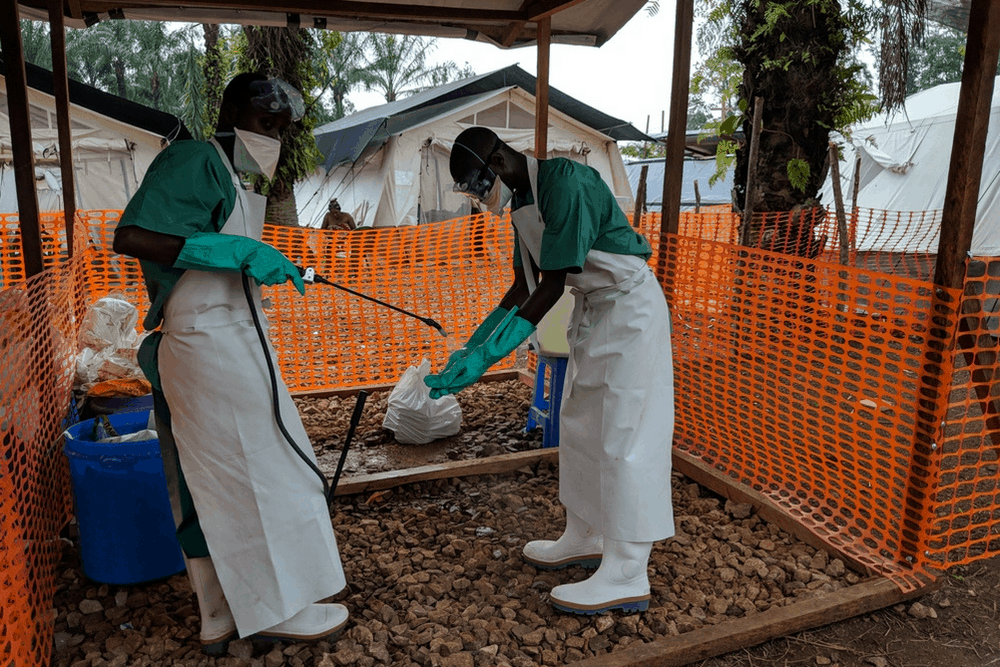
Health workers washing hands after distributing food to patients in the Ebola treatment centre in Mangina, Democratic Republic of Congo (DRC).
The 10th Ebola outbreak in the DRC was declared on 1 August in Mangina, North Kivu, near the city of Beni and the Uganda border. According to the latest figures the virus has killed 41 people. MSF has set up a treatment centre in Mangina to provide care for Ebola patients. Our response also includes support to the local health system by reinforcing infection prevention and control, and helping to keep health centres in the area safe from contamination.
Photo: Karin Huster/MSF
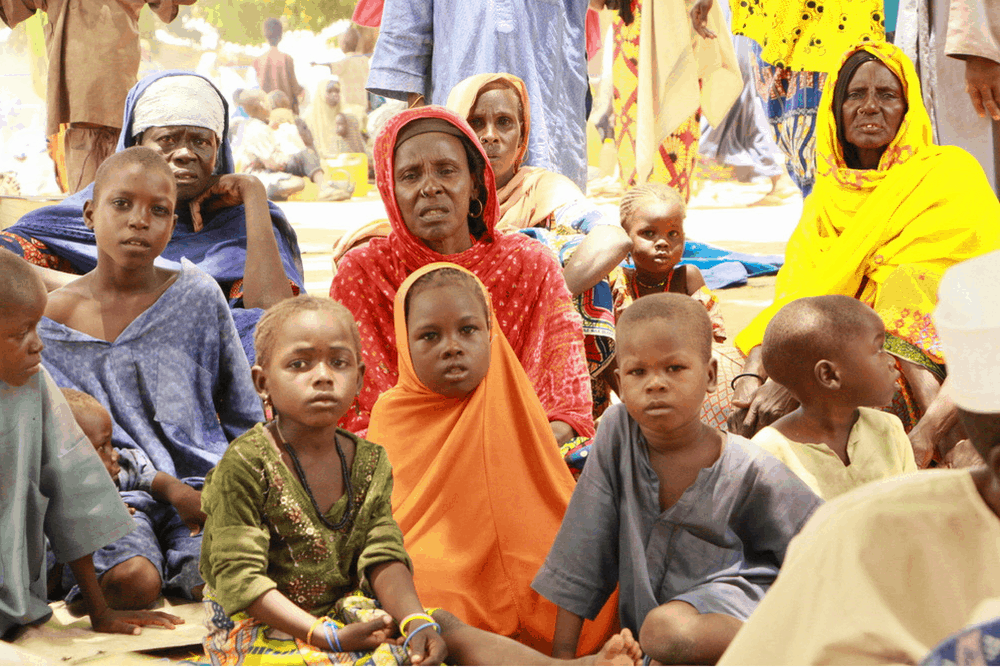
New arrivals at a camp for internally displaced persons (IDPs) in Bama, Borno.
Since April 2018, more than 10,000 people have arrived in a camp in Bama, Borno state, taking the population of the camp beyond its capacity of 25,000 people. Shelter and healthcare assistance have not kept pace with the growing population, leading to a critical humanitarian situation in the camp – especially for young children. On 16 August, MSF opened a facility to treat severely malnourished children under five years old and to provide care for patients under 15 with severe malaria and other diseases. MSF is calling on authorities to urgently address humanitarian needs before the situation deteriorates further.
Photo: Nitin George/MSF
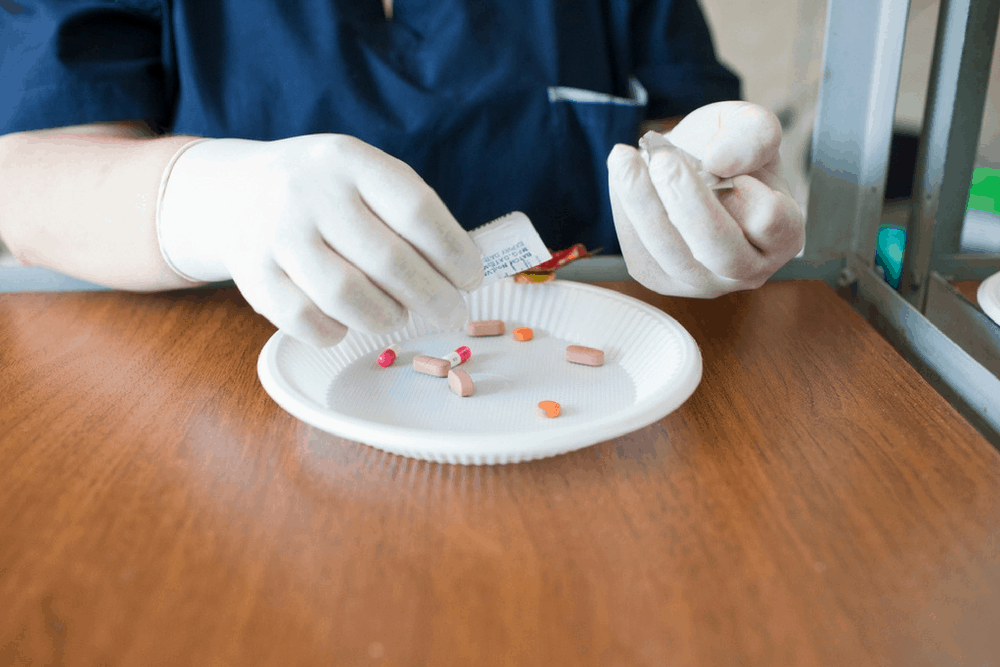
A nurse prepares medicines for a drug-resistant TB patient at the National Centre for Tuberculosis and Lung Disease in Tbilisi, Georgia.
The World Health Organization released recommendations for the treatment of people with drug-resistant tuberculosis (DR-TB) this month, calling for prioritising the use of several oral drugs, including the new drug bedaquiline, and minimising the use of drugs that must be injected. The newly recommended 18- to 20-month treatment regimen can help improve cure rates, decrease mortality and have far fewer side effects in comparison to the current standard DR-TB treatment regimen.
Welcoming the recommendations and calling for scale-up of treatment, MSF urged the US pharmaceutical corporation Johnson and Johnson (J&J), which produces bedaquiline, to take immediate steps to make the drug affordable for all who need it – particularly in low- and middle-income countries and high DR-TB burden countries.
Photo: Daro Sulakauri
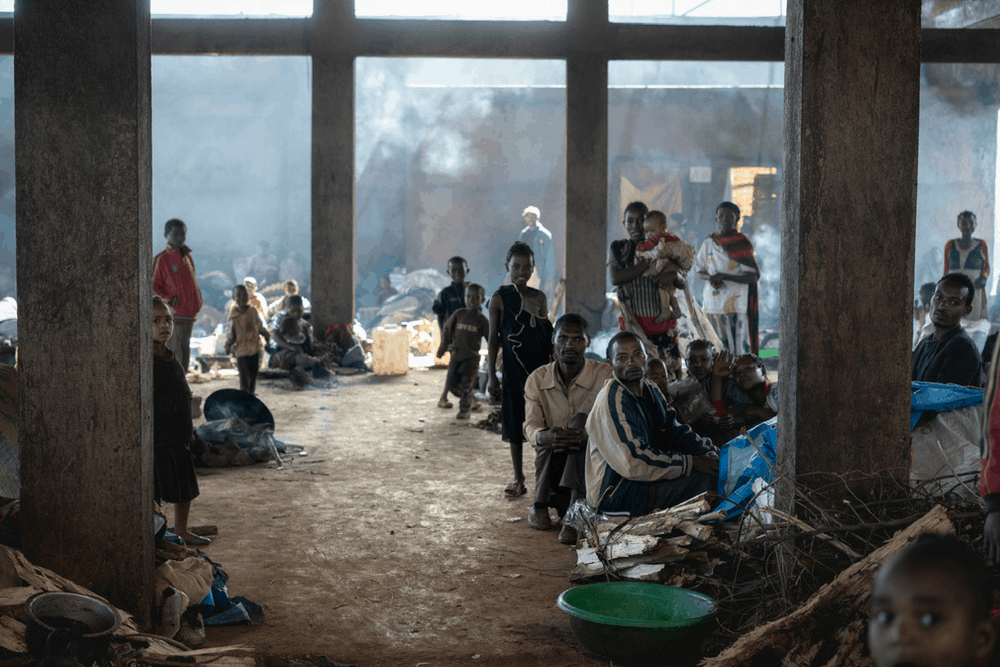
IDPs inside a school warehouse facility Gedeo, Ethiopia.
A surge in inter-communal violence in the Southern Nations, Nationalities, and Peoples’ Region (SNNPR) and Oromia regions of Ethiopia has left more than 900,000 displaced along the border between Gedeo and West Guji zones. After an initial assessment of the crisis, MSF has launched an emergency response to address the most urgent needs of displaced people.
Photo: Gabriele François Casini/MSF











